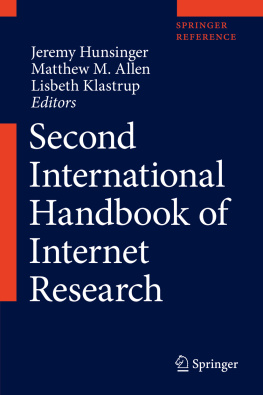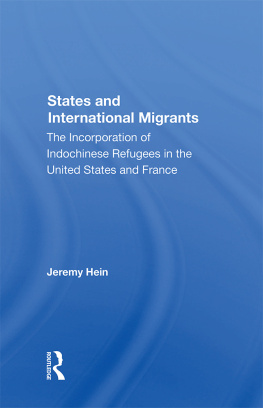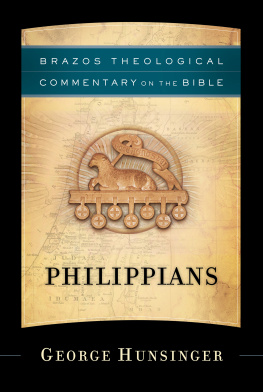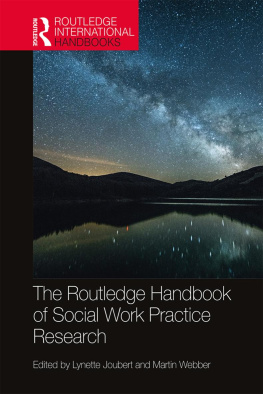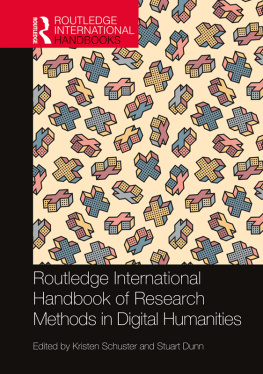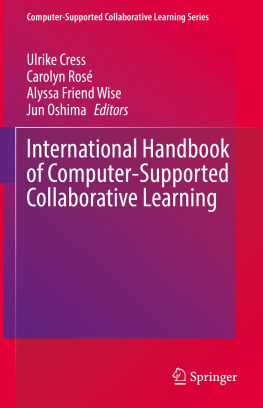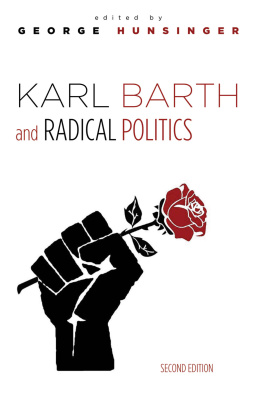Jeremy Hunsinger - Second International Handbook of Internet Research
Here you can read online Jeremy Hunsinger - Second International Handbook of Internet Research full text of the book (entire story) in english for free. Download pdf and epub, get meaning, cover and reviews about this ebook. year: 2020, publisher: Springer Netherlands, genre: Politics. Description of the work, (preface) as well as reviews are available. Best literature library LitArk.com created for fans of good reading and offers a wide selection of genres:
Romance novel
Science fiction
Adventure
Detective
Science
History
Home and family
Prose
Art
Politics
Computer
Non-fiction
Religion
Business
Children
Humor
Choose a favorite category and find really read worthwhile books. Enjoy immersion in the world of imagination, feel the emotions of the characters or learn something new for yourself, make an fascinating discovery.
- Book:Second International Handbook of Internet Research
- Author:
- Publisher:Springer Netherlands
- Genre:
- Year:2020
- Rating:4 / 5
- Favourites:Add to favourites
- Your mark:
- 80
- 1
- 2
- 3
- 4
- 5
Second International Handbook of Internet Research: summary, description and annotation
We offer to read an annotation, description, summary or preface (depends on what the author of the book "Second International Handbook of Internet Research" wrote himself). If you haven't found the necessary information about the book — write in the comments, we will try to find it.
Second International Handbook of Internet Research — read online for free the complete book (whole text) full work
Below is the text of the book, divided by pages. System saving the place of the last page read, allows you to conveniently read the book "Second International Handbook of Internet Research" online for free, without having to search again every time where you left off. Put a bookmark, and you can go to the page where you finished reading at any time.
Font size:
Interval:
Bookmark:
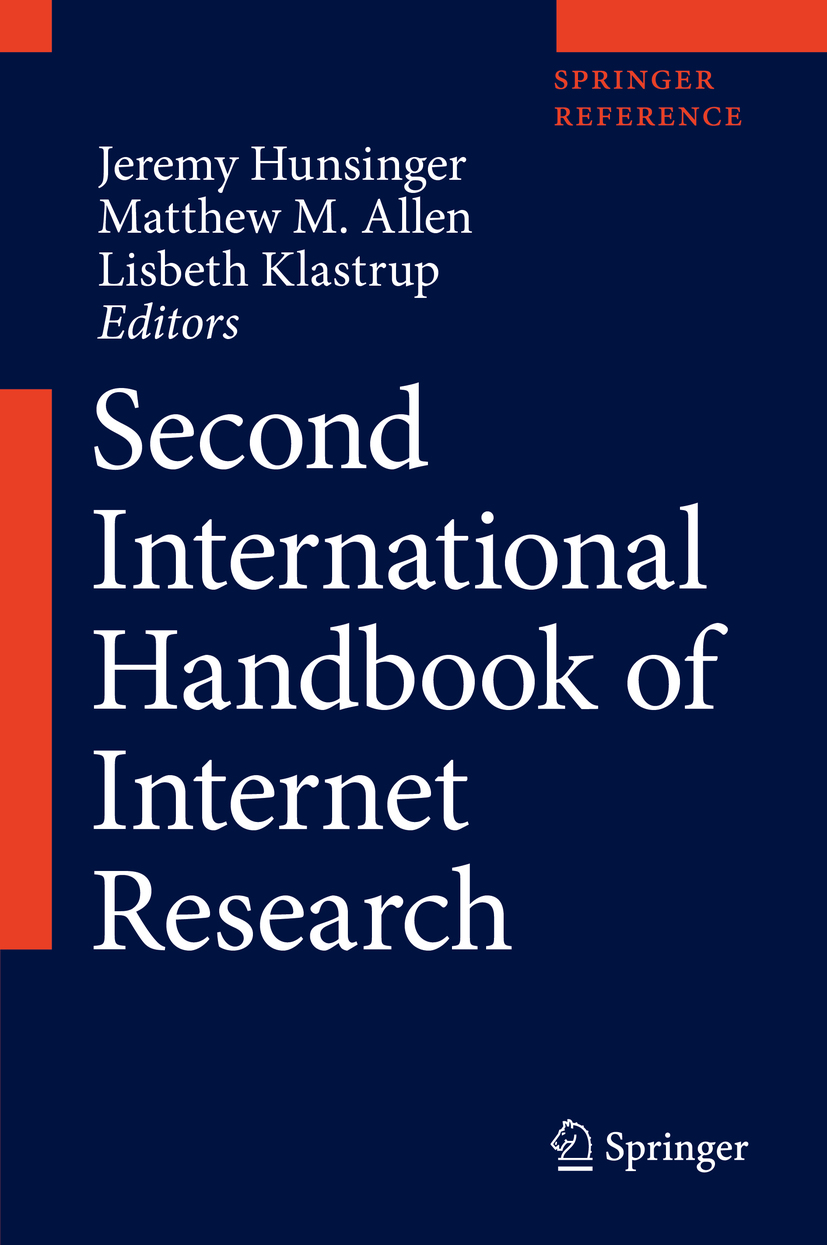

This Springer imprint is published by the registered company Springer Nature B.V.
The registered company address is: Van Godewijckstraat 30, 3311 GX Dordrecht, The Netherlands
With the Second International Handbook of Internet Research , we have brought together a diverse series of papers that highlight elements of the still-growing field of internet studies. Internet research as an academic field encompasses plenty of possibilities and a multitude of perspectives. While one might think that this field deals with how to research things via the internet, in fact focus has always been on how the internet operates and who uses it, in which ways, and why. It also attends closely to the question of how the internet also acts upon societies, polities, and economies to create change through its relations. Emerging in the mid-to-late 1990s, the field of internet research is today well established across a variety of academic disciplines and interdisciplinary endeavors. Internet research has taken center stage, in both methods and questions, for many scholars precisely because the internet itself has radically transformed contemporary human life and endeavor in the past 25 years. While the technical means and economic systems through which the internet works have changed dramatically, and the scope of what might constitute the internet has expanded in many ways, the underpinning conceptual nature of a network of networks and the consequent reorientation of mediated human communication and information provision have not. Internet research is the leading field within which all manner of research relating to humancomputer interaction, computer-mediated action, and networked communication can find a home.
The internet is a strange object of study because, on the one hand, there is no internet, there is just a collection of computers and networks with their services, and on the other hand, the internet is becoming almost everything for large sections of the global population. People who research the internet recognize the abundant opportunities and problems that the intangibility and growth of the internet generates. The individuals and communities that use the internet, including researchers, can easily see it as both uniting people into groups and yet also polarizing those groups against one another. There are people exploring a wide variety of goods via the internet, trying to unite the world and make it a better place, and some seeking to do a great deal of evil through for instance exploitation of data and strategic dissemination of misinformation. As researchers, we have come to understand that researching the internet and its population is anything but simple. It is a complex environment rife with ethical, political, and sometimes even existential challenges. No longer a subcultural formation, distinct from the mainstream (when we used to refer to being online and offline), the internet is now always-on, always-there, and always in mind for the vast majority of the world and for every social group and nation-state.
What is clear is that while we have had the commercial internet since the 1990s and the technology of the internet since the 1960s, experience alone is not providing adequate guidance for its development and use. More finely grained research into highly specific topics, is needed. The field of internet research is young, though it has foundations in social and technical research that are far older than its object of study. As researchers we still struggle to develop methodologically appropriate tools to inquire into and know the constant new practices of the internets users and designers, technologists, and politico-economic overseers. Indeed the Association of Internet Researchers, the primary academic body representing internet research, is only approaching its twentieth annual conference: each year, not only are new insights found at this conference but also deep discussions held as to how to continue our research for future success.
New knowledge and new areas of research will continue being developed. This volume exemplifies that trend. In our first International Handbook of Internet Research , we gathered a broad array of papers that attempted to map what we considered a fair part of the field. Now, almost 10 years later, the field is so broad that we could never attempt the same and be successful. We have instead divided this handbook into two sections, foundations and futures, the first representing new and current takes on internet research and the second representing thoughts and discussions of where researchers believe internet research is headed and what it needs to focus on. We can think of these sections as a set of recombinant treasure maps that mutate, multiply, and divide under careful readings of each individual chapter. The chapters speak to each other in many respects, not necessarily because of intent, but because each is a voice in the multiplying conversation of internet research, and they are produced as much by the way authors listen to and speak into that shared conversational domain, respectful of what is already said but eager to move us forward.
Neither of these sets of papers is in any way intended to be complete or comprehensive. Instead, they are meant to be exemplary and good guides to either modes of research or directions in which to pursue research. The variety they encompass indicates the richness of the field without ever attempting to capture the whole of the field. Our efforts as editors have been to provide highlights and emphasis that could be useful and inspiring, also for future researchers. We have also attempted to promote a diversity of voices and perspectives, to truly represent the international diversity of internet research.
Font size:
Interval:
Bookmark:
Similar books «Second International Handbook of Internet Research»
Look at similar books to Second International Handbook of Internet Research. We have selected literature similar in name and meaning in the hope of providing readers with more options to find new, interesting, not yet read works.
Discussion, reviews of the book Second International Handbook of Internet Research and just readers' own opinions. Leave your comments, write what you think about the work, its meaning or the main characters. Specify what exactly you liked and what you didn't like, and why you think so.

